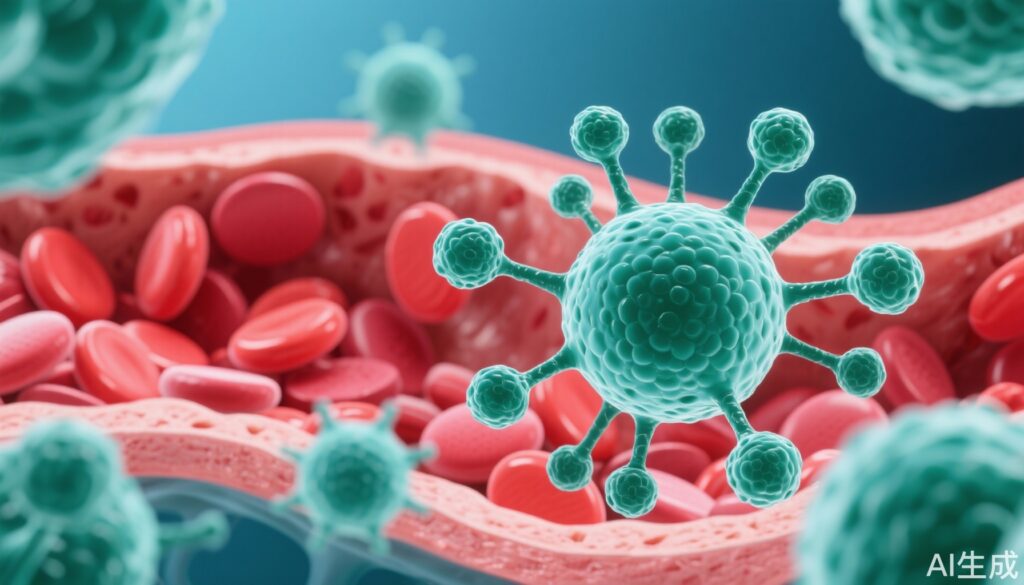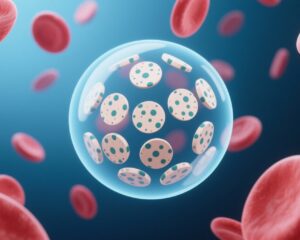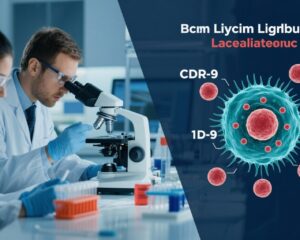Highlight
- Patients with relapsed/refractory B-ALL treated with CD19 CAR-T who exhibit low neutrophils and platelets alongside elevated proinflammatory cytokines by Day 1 post-infusion have poor therapeutic responses.
- Both dysfunctional responders and patients experiencing severe cytokine release syndrome or neurotoxicity share similar high proinflammatory cytokine profiles, particularly by Day 7 post-infusion.
- High cytokine levels at early time points predict poor survival independently of baseline disease burden, suggesting inflammation’s independent role in outcome determination.
- Strategies aimed at mitigating the early proinflammatory state may reduce toxicity and improve response rates after CAR-T therapy.
Study Background and Disease Burden
Relapsed or refractory B-cell acute lymphoblastic leukemia (R/R B-ALL) remains a major therapeutic challenge, with historically poor outcomes despite intensive chemotherapy or hematopoietic stem cell transplantation. Introduction of CD19-directed chimeric antigen receptor T-cell (CAR-T) therapy has markedly improved remission rates and extended survival. Nonetheless, about 20% of patients fail to achieve a minimal residual disease-negative complete remission (MRD-CR). Additionally, CAR-T therapy can cause severe toxicities, including cytokine release syndrome (CRS) and neurotoxicity (NTX), which can be life-threatening and complicate management.
Understanding the biological factors that underpin why some patients fail to respond effectively or suffer severe toxicities is critical for enhancing patient selection, tailoring interventions, and optimizing CAR-T treatment protocols in R/R B-ALL. Systemic inflammation, reflected by circulating cytokine profiles and peripheral blood cell counts, may influence CAR-T cell expansion, persistence, and anti-leukemic efficacy, as well as toxicity risk.
Study Design
This prospective observational study analyzed serum cytokine profiles during the first week after autologous CD19 CAR-T infusion in 86 patients (both adult and pediatric) with R/R B-ALL. Patients were categorized based on treatment response and toxicity into three groups:
1. Dysfunctional Response: Patients failing to achieve MRD-negative CR by Day 63 or relapsing with CD19+ disease while CAR-T cells were still detectable before Day 63.
2. Functional Response with Severe Toxicity: Patients achieving MRD-CR by Day 63 who developed grade 3 or higher CRS or neurotoxicity.
3. Functional Response without Severe Toxicity: Patients achieving MRD-CR by Day 63 without grade ≥3 CRS or neurotoxicity.
Serial cytokine measurements, complete blood counts, and CAR-T expansion kinetics were analyzed and correlated with clinical outcomes, including remission status, toxicity severity, and survival.
Key Findings
Patients exhibiting dysfunctional responses had notably decreased baseline peripheral neutrophils and platelets, suggesting impaired bone marrow reserve. Concurrently, these patients showed elevated levels of multiple proinflammatory cytokines, including IL-6, IFN-γ, TNF-α, and others as early as Day 1 post-CAR-T infusion. This early cytokine surge was indicative of a dysregulated inflammatory milieu unfavorable for sustained CAR-T efficacy.
Interestingly, patients who achieved remission but experienced severe CRS or neurotoxicity also demonstrated progressively increasing proinflammatory cytokine levels, culminating in levels comparable to those seen in dysfunctional responders by Day 7 post-infusion. This overlapping cytokine profile suggests that extreme inflammation, whether associated with poor disease control or toxicity, is a common denominator.
High cytokine levels at both Day 1 and Day 7 time points were strongly predictive of poor overall survival. Importantly, the prognostic value of cytokine elevation remained significant even after adjusting for disease burden, a known confounder that correlates with both toxicity and treatment failure.
The data imply that early post-infusion systemic inflammation is not merely a consequence of high leukemia burden but an independent driver of poor CAR-T cell antileukemic responses and severe toxicities. Low peripheral blood counts alongside elevated inflammatory cytokines likely reflect compromised bone marrow microenvironment and heightened immune activation detrimental to therapeutic outcomes.
Expert Commentary
This study provides valuable insights into the immunobiology of CAR-T therapy failure and toxicity in R/R B-ALL. The association of low granulocytic counts with inflammatory cytokine elevation suggests that bone marrow reserve and inflammatory state are interlinked determinants. Prior research has established that myelosuppression can impair immune reconstitution and CAR-T expansion; this study extends that knowledge by linking early cytokine profiles with these clinical parameters.
The similarity in cytokine trajectories between severe toxicity and dysfunctional response groups supports the concept that a delicate balance in immune activation is necessary for CAR-T efficacy without collateral adverse effects. Interventions such as prophylactic anti-inflammatory agents, cytokine blockade (e.g., IL-6 receptor antagonists), or modulation of conditioning regimens warrant further exploration to mitigate the deleterious inflammatory state early after CAR-T infusion.
Limitations include the observational nature and heterogeneous patient population, which may influence generalizability. Nonetheless, the longitudinal cytokine profiling and integration with hematologic and clinical data strengthen the evidence implicating inflammation as a therapeutic target.
Conclusion
Elevated proinflammatory cytokines coupled with low peripheral blood counts shortly after CD19 CAR-T infusion predict poor response and severe toxicity in patients with relapsed/refractory B-ALL. These findings underscore the pivotal role of early systemic inflammation in determining CAR-T therapy outcomes, independent of leukemia burden.
Future strategies that reduce the initial proinflammatory environment—either through pharmacologic interventions or optimized patient conditioning—may enhance remission rates and reduce life-threatening toxicities. This research advances precision medicine approaches by identifying biomarkers for risk stratification and avenues for improving CAR-T safety and efficacy.
References
1. Burleigh K, Stratton KG, Smith JL, et al. Low Peripheral Blood Counts and Elevated Proinflammatory Cytokines Signal a Poor CD19 Chimeric Antigen Receptor T-cell Response in Acute Lymphoblastic Leukemia. Transplant Cell Ther. 2025;31(8):551-564. doi:10.1016/j.jtct.2025.05.003
2. Neelapu SS, Locke FL, Bartlett NL, et al. Axicabtagene ciloleucel CAR T-cell therapy in refractory large B-cell lymphoma. N Engl J Med. 2017;377(26):2531-2544. doi:10.1056/NEJMoa1707447
3. Lee DW, Gardner R, Porter DL, et al. Current concepts in the diagnosis and management of cytokine release syndrome. Blood. 2014;124(2):188-195. doi:10.1182/blood-2014-05-552729
4. Brudno JN, Kochenderfer JN. Toxicities of chimeric antigen receptor T cells: recognition and management. Blood. 2016;127(26):3321-3330. doi:10.1182/blood-2016-04-703751


